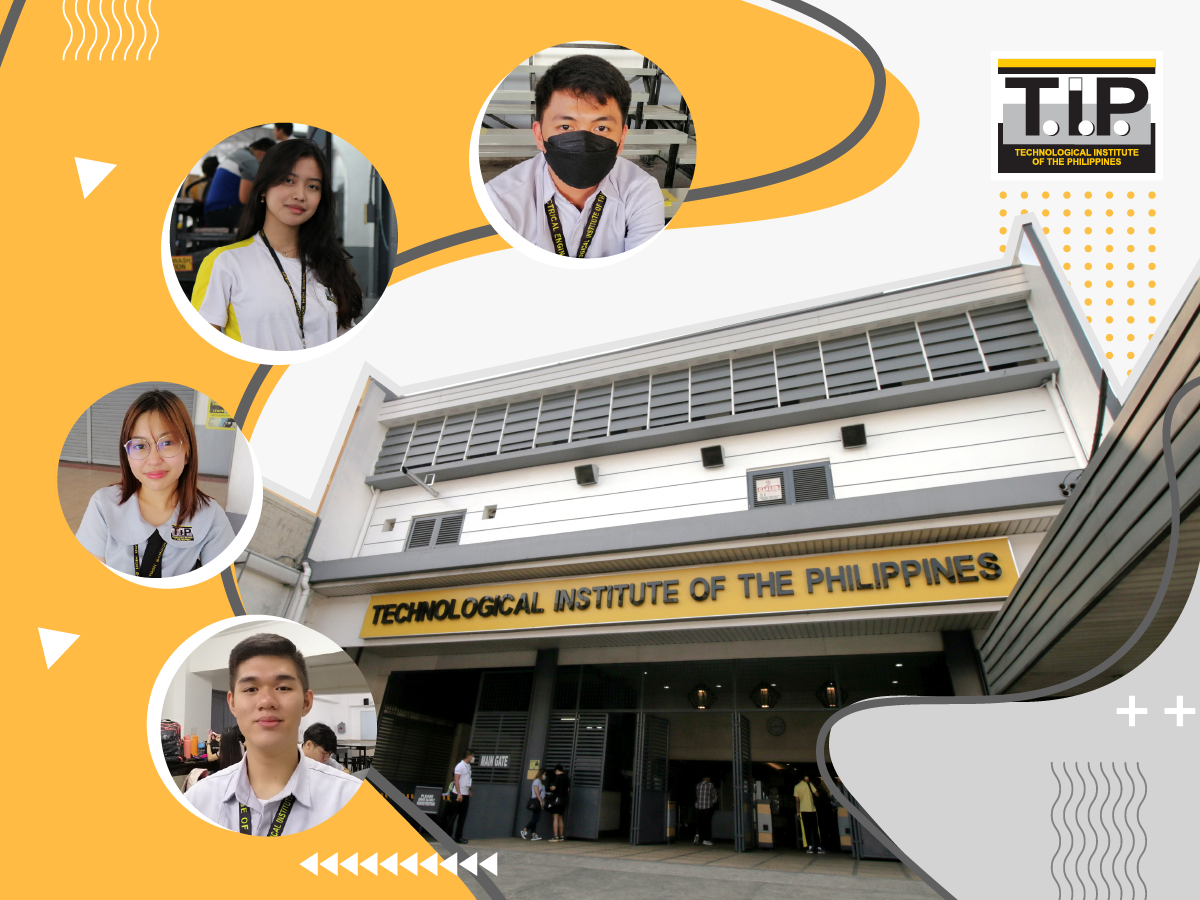


Transferees Explain What Made Them Choose T.I.P.
Transitioning from one school to a new campus is something that many students will likely experience at a certain point in their higher education journey. Some may struggle with it while others seem to have no trouble making the necessary adjustments.
If you find yourself in this situation, you might want to learn from some of our senior high school and college students, who shared their thoughts about why they transferred to the Technological Institute of the Philippines (T.I.P.) and how they adapted to its teaching and learning environment.
COMPETITIVE ENGINEERING EDGE
BS Electrical Engineering freshman Roel Maur of T.I.P. Manila used to study computer engineering at another school. But he was aiming for a more suitable undergraduate program that offered him the best value for money.
“My target is for the tuition to not be that expensive, but the competitiveness of the school is much better. In terms of the level of engineering education, T.I.P. is already quite known for that, so that is the reason (I transferred here),” he said.
Roel spent a year in his former school. He had to repeat his freshman year when he shifted to electrical engineering at T.I.P. Manila. Fortunately, the school accredited some of the general education subjects he already took from the previous university he attended.
“Actually, I think it worked more as an advantage for me. Because during enrollment, so to speak, I did not have a hard time adjusting since I was placed in a blocked section already in some of the classes,” Roel said of his transition to the T.I.P. system.
GOOD EDUCATION SYSTEM
The educational system is also what drew Grade 11 student Paulene Obcemea to the senior high school program of T.I.P. Quezon City. She was not satisfied with her learning experience in her former school, so she decided to look for a different environment.
“Tuition-wise, I believe it’s worth it here because of the good educational system. In other schools, you are paying a lot more, but the school buildings look ugly or are not well-constructed and some of the teachers are not even licensed to teach,” she said.
Paulene is pursuing the science, technology, engineering and mathematics (STEM) strand. She enjoys going to her classes at T.I.P. Quezon City because she finds the campus “super cool” and she appreciates that her teachers take the mental health issues of students seriously.
FAMILY AS STRONG INFLUENCE
For Grade 12 student Alikah Arienh Sadamas, her siblings strongly influenced her decision to study at T.I.P. Manila. She has two older brothers who graduated from the same T.I.P. engineering college and she heard lots of great things about it from them.
“(They told me that) the school is good, for example, when it comes to the engineering programs. I expected the same learning experience for my senior high school years and they are being met thus far in terms of the knowledge that I am acquiring,” she said.
It appears that Alikah has plans of taking after her brothers because she, too, has been pursuing the STEM strand. Like Paulene, she holds the professionalism of her teachers in high regard because they make learning fun for students.
“We don’t feel overwhelmed with our studies because there are other activities in between. Our teachers are very considerate about the due dates (of projects), or if you have concerns, they will assist you… How they handle the students is very professional and nice,” she said.
SMALL COMMUNITY AS AN ADVANTAGE
Although engineering remains as one of its areas of specialization, T.I.P. also has somewhat underrated programs in the College of Arts, according to sophomore AB English major and student ambassador Anthony Jeth del Rosario.
Like Alikah, family is also what connected Anthony to T.I.P. Quezon City. His mother works for the school. “I trusted my mom because I knew that she wouldn’t actually put me in a bad spot and I’m glad I did because studying here is actually worth it,” he said.
Anthony understands that the student population for arts and humanities related programs at T.I.P. is rather small, but he does not see it as an issue. In fact, he considers it an advantage because that means their professors can have more time teaching them.
“The thing about being in a small community is that you are more focused on, so you are given more opportunities to learn and the opportunities there are equal. You can properly generate your own ideas because of the guidance that your professors give you,” he said.
“The professors are more hands-on when it comes to teaching a small number of students, so the quality is greater. You know, we say ‘quality over quantity’ and that is what happens here in the College of Arts,” Anthony underscored.
In terms of commuting as part of his daily college life, Anthony said it is also “not bad” because they live only six kilometers away from the school, although he acknowledged that the traffic and long queues of passengers at LRT stations do present some problems for him occasionally.



